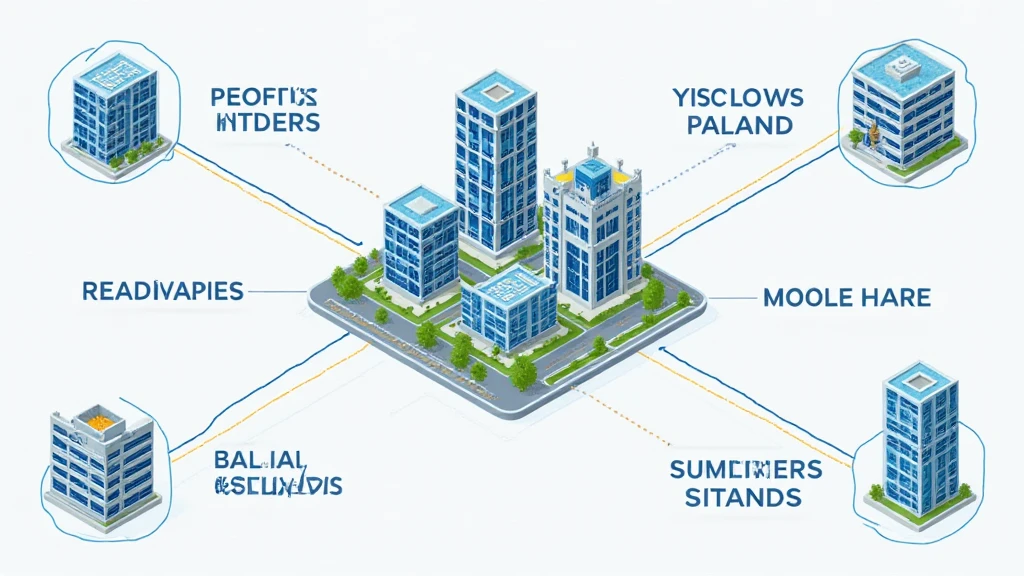Ethereum Real Estate DAOs: Transforming Property Ownership
As the demand for innovative solutions in property ownership grows, we find ourselves at the forefront of a revolution brought about by technologies like blockchain. Over the past decade, the real estate sector has slowly started to adopt decentralized frameworks, but it is only in recent years that a significant transformation has begun. With approximately $4.1 billion lost to hacks in decentralized finance (DeFi) in 2024, security remains a key issue. However, the opportunities presented by Ethereum-based real estate DAOs are enormous.
This article dives deep into Ethereum real estate DAO frameworks, uncovering the potential they hold for real estate transactions, ownership, and investment. Whether you are an investor, a real estate enthusiast, or just curious about blockchain applications in property, this guide aims to provide you with valuable insights.
Understanding Ethereum and Real Estate DAOs
To grasp the implications of Ethereum in real estate, we must first elucidate what DAOs (Decentralized Autonomous Organizations) are. DAOs are entities governed by smart contracts — computer protocols that facilitate, verify, or enforce the negotiation or performance of contracts. In a DAO, all members typically possess voting rights based on their equity stake or holdings, ensuring a form of democratic governance.

The use of Ethereum as the underlying blockchain for these DAOs allows for unparalleled security, transparency, and efficiency. For example, instead of manually executing contracts, transactions and ownership transfers can occur instantly through congruent programming.
The Rise of DAOs in Real Estate
The traditional real estate sector has been characterized by inefficiencies due to lengthy transactions, high costs, and opaque processes. However, the introduction of DAOs has come with promising solutions:
- Transparency: Each transaction is immutable and accessible on the blockchain, eradicating doubts associated with the historical ownership of properties.
- Fractional Ownership: DAOs enable fractional ownership, allowing multiple individuals to share equity in a property, which lowers the entry barriers for potential investors.
- Streamlined Transactions: Reducing reliance on intermediaries such as brokers can drastically cut the time required to complete a sale.
How DAOs Change Property Transactions
Books and traditional real estate models may not easily capture the dynamics introduced by Ethereum real estate DAOs. Instead of central oversight, the blockchain acts as a universal ledger that enables seamless peer-to-peer transactions. The advantages in efficiency are stark:
- Real estate transactions can be completed in seconds rather than weeks or months.
- Theoretically, this framework can eliminate title insurance costs since the title can be verified via the blockchain.
This transformation is analogous to how streaming services disrupted traditional broadcasting; people no longer need to depend on a centralized entity to access real-time content.
Challenges and Barriers to Adoption
Despite the innovations blockchain and DAOs bring to real estate, challenges remain:
- Regulatory Concerns: This new model raises legal questions about property rights and applicable compliance regulations, particularly in different jurisdictions.
- Market Acceptance: Traditional real estate professionals may resist adopting these technologies due to fears of obsolescence.
In Vietnam, for instance, despite a steady growth rate among crypto users, the acceptance of blockchain technologies in real estate is still in its infancy. The Vietnam crypto user growth rate was estimated at 60% in 2024, indicating potential demand but also significant educational and policy work ahead.
Existing Ethereum-Based Real Estate DAOs
Not all DAOs are created equal. Several projects are at the forefront of implementing Ethereum DAO frameworks in real estate. Here are a few notable examples:
- RealT: This platform allows users to invest in fractions of properties and earn rental income, with ownership represented as tokens on the Ethereum blockchain.
- Propy: A real estate platform that aims to become a global real estate marketplace by introducing smart contracts and improving sales efficiency.
Such platforms exemplify real-world implementations of Ethereum DAOs that allow anyone—regardless of financial background—to invest in and own a slice of real estate.
Security Features in Ethereum Real Estate DAOs
One of the highlights of Ethereum DAOs is their strong security measures. Using blockchain technology means transactions are recorded and validated across multiple nodes, making them extremely difficult to tamper with. Ethereum employs a consensus mechanism known as Proof of Stake (PoS), which not only enhances transaction speeds but also provides robust security against various forms of attacks.
In addition to protocol-level security, it’s critical for DAO operators to implement security audits and best practices in coding smart contracts. Highly reputed auditing firms often lean on methodologies to scrutinize contracts for vulnerabilities, ensuring that the funds and functions of the DAO remain safe.
Future of Ethereum Real Estate DAOs
The future looks promising for Ethereum-based real estate DAOs as more individuals and entities recognize the value inherent in decentralizing ownership and transactions. With greater democratization of property investments, we’re likely to see:
- Increased Adoption: As more users engage with cryptocurrencies, the acceptance of Ethereum-based solutions will grow, leading to further decentralization.
- Innovative Solutions: New models of real estate ownership may emerge, along with integrated applications combining finance and real estate, attracting even more interest.
- Global Reach: Property investors from diverse geographical locations can transcend traditional barriers to entry.
Just as Bitcoin has carved its name in the digital world, Ethereum-based DAOs could redefine how individuals perceive property ownership globally.
Conclusion
The journey towards integrating Ethereum real estate DAO frameworks represents an evolutionary step in how we understand property ownership and transactions. With the potential for transparency, efficiency, and democratization of assets, we observe a pivotal shift in traditional paradigms. As the landscape continues to change, real estate professionals and developers must adapt to this digital revolution or risk becoming obsolete in an increasingly decentralized world.
For those intrigued by the future of real estate investing, the Ethereum DAO frameworks present a unique opportunity worth exploring more deeply. While the road to widespread adoption may be fraught with challenges, the potential benefits far outweigh the obstacles. Let’s watch this space develop!
Not financial advice. Consult local regulators. For more on crypto regulations and evolving technologies in Vietnam, visit hibt.com.
Stay updated with officialcryptonews.




